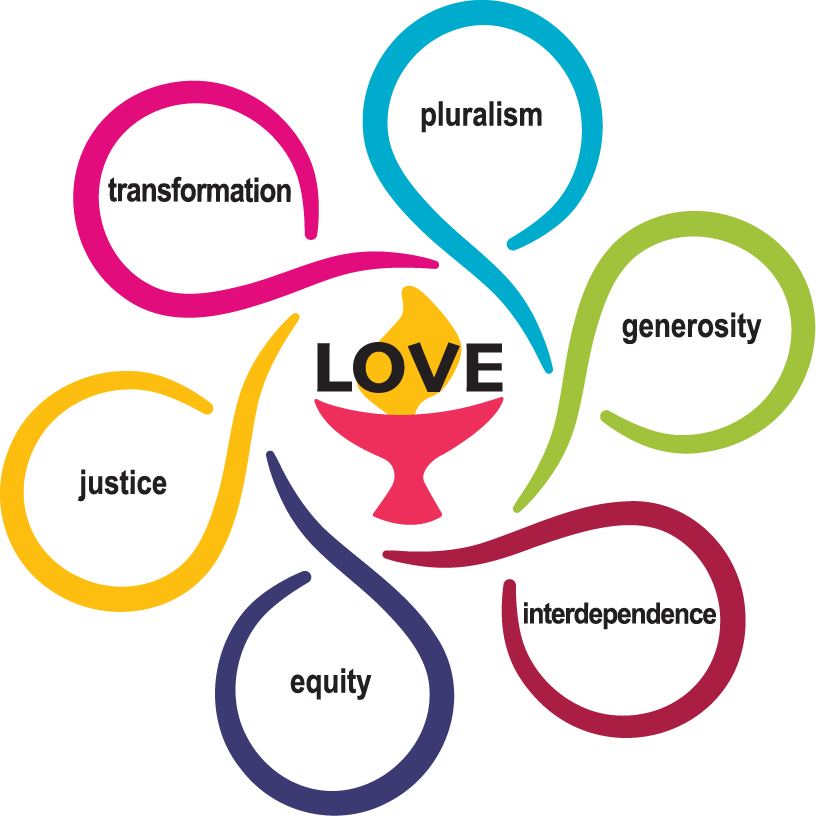This is my 20th year as a Unitarian Universalist. In my early years, it was not uncommon to hear someone say: “In Unitarian Universalism, you can just believe whatever you want to.” When that came from a fellow UU, I felt like I knew what they were trying to say. When it came from someone not in the UU community, it made me feel like we were doing ourselves and others a disfavor by saying that.
I don’t think it’s ever been true. I think I know what it was aiming for.
One way to view the multiplicity of religions in the world and the even greater multiplicity of spiritualities, beliefs and world views is this: there are many streams all of which eventually connect with the ocean. While they are flowing and meandering and rushing in and around and through their curves and banks and over cliffs, each of these rivers appears unique and identifiable. When each reaches the place where they merge with another river, another body of water, their uniqueness begins to fade. Ultimately they merge with the ocean; the only thing that is clear is that they are one. That is at least part of the vision of Unitarian Universalism.
During this month of February, we are exploring living love through the practice of inclusion. At first glance, it might be easy to think that the practice of inclusion means that we just accept and welcome anything and anyone. Even questioning that might raise some eyebrows, but here is why I suggest that we exercise curiosity about inclusion. As Unitarian Universalists, we create the sacred spaces of our communities around seven values each of which informs the other.

As we attempt to live love through the practice of inclusion, what and who we include in our thoughts, lives, and community will be marked and guided by the other values. For example, could we imagine including ideas and people who are against justice for all beings? Could we imagine including ideas and people who perpetuate the privilege and power of some people over others? Could we imagine being a community that tends only to itself and never reaches out to others? Our values of justice, equity and generosity, all flowing out of deep love would say that we could not, should not, would not.
Recently we witnessed the prophetic words of Episcopal Bishop Mariann Edgar Budde to President Trump. The common theme used by the media was that she “called him out.” I beg to differ. She did not call him out, humiliating him publicly to score some political or institutional points. She called him in. She called him into mercy, to generosity, to equity, to transformation, to justice, to interdependence, to pluralism. She called him into love, and in so doing, she demonstrated to the world what the practice of inclusion looks like when facing trouble, cruelty, injustice and fear. Inclusion includes calling one another into the values that we hold at our core especially when we seem to have lost our way. That’s not easy, but the work of the Spirit always comes with challenge and the possibility of transformation.
May this month of exploring the practice of inclusion be rich, transformative, and empowering for us.
~Bob Patrick

Oh, I love how you flesh out the underpinnings and connections of our values to this practice of inclusion. It offers such a solid GROUNDING from which we can decide and move and embrace and set boundaries and live into the practice of Beloved Community, as Josiah Royce and Dr. Martin Luther King Jr. prophetically proclaimed it! Thanks, Bob!
Bob, I loved your interpretation of Budde’s words as calling Trump into love!
Peggy